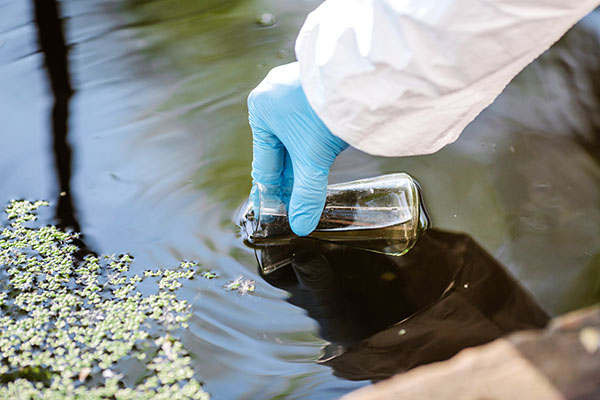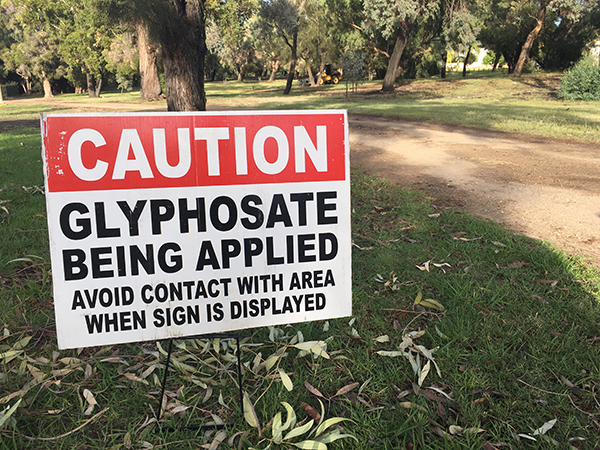EPA monitoring a new class of toxic PFAS in municipal water supplies – GenX chemicals
01/31/2024 / By Lance D Johnson

Endocrine disruptors, carcinogens and a plethora of pharmaceutical drugs pollute municipal water supplies, infiltrating our tap water. On March 14, 2023, the Environmental Protection Agency (EPA) announced a National Primary Drinking Water Regulation for six types of per- and polyfluoroalkyl substances (PFAS). These “forever” chemicals have been manufactured since the 1940s. Today, these endocrine disruptors and carcinogens persist in soil, water, and are routinely measured in human blood and bone.
PFAS include chemicals that are used to make firefighting foams, coatings for clothes and furniture, and food contact substances, to name just a few sources. If a product advertises non-stick, waterproof, or stain-resistant, it likely contains some form of PFAS. As the toxicity of PFAS become well known, industries have switched to alternative chemicals in their manufacturing processes, namely GenX chemicals. However, these chemicals are slowly becoming a human health concern in their own right.
GenX chemicals are now a human health concern
These shorter chain GenX chemicals do not persist as long in the environment, but they are more mobile than the longer chain PFAS and can travel further from contaminated sites and deeper into ground water sources. GenX chemicals are replacing PFAS in manufacturing settings, but their toxicity to humans is just now being documented. According to a new EPA assessment, their toxicity profile doesn’t look much better than traditional PFAS. There is concern over liver damage and liver lesion formation. While these chemicals do not last as long in the environment as traditional “forever chemical” PFAS, they are able to travel further from contaminated sites and pollute water sources that would normally be protected from contamination.
GenX chemicals refer to the toxic byproducts that come from processing aid technologies that are used in the manufacture of high-performance fluoropolymers. Hexafluoropropylene oxide (HFPO) dimer acid and its ammonium salt are the major chemicals associated with this technology. The EPA is just beginning to obtain information from manufacturers on which commercial products rely on GenX chemicals as a processing aid. The EPA has made a final assessment on these chemicals in regard to potential human health effects associated with oral exposure.
These health effects include damage to the liver, kidneys and immune system of humans. Exposure to Gen X chemicals in drinking water also negatively effects the development of offspring and is associated with various cancers.
In the studies, low dose exposure to GenX chemicals caused alterations of cytoplasm and apoptosis and necrosis of liver cells. GenX chemicals notably increased liver enzymes, increased liver weight and even caused a constellation of lesions in the livers of female mice. Furthermore, the chemicals changed lipid and carbohydrate metabolism in pregnant mice, leading to anabolic challenges during early gestation and catabolic challenges in advanced pregnancy.
These are just the initial risks studied for oral exposures. The EPA also warns that GenX chemicals are getting in the air from manufacturing sites and causing health issues, but these issues are currently under review.
According to a December 27, 2021 EPA ruling, certain municipal water systems must monitor for 29 different PFAS, including GenX chemicals. These PFAS will be monitored during the period beginning January 2023 and ending December 2025, with final results to be reported in 2026. The EPA lists three technologies to help reduce PFAs and GenX chemicals in tap water. These include activated carbon, anion exchange and high-pressure membranes.
To learn more about water filtration and protecting your body from PFAS and GenX chemicals, check out WaterFilterLabs.com.
Sources include:
EPA.gov [PDF]
EPA.gov [PDF]
EPA.gov [PDF]
Submit a correction >>
Tagged Under:
cancer criminals, chemical manufacture, clean water, Dangerous, disease causes, Ecology, Endocrine disruptors, environment, EPA, GenX chemicals, insanity, liver damage, liver health, PFAS, poison, pregnancy, tap water, toxic chemicals, toxins, water supply, Water Toxicity
This article may contain statements that reflect the opinion of the author




















